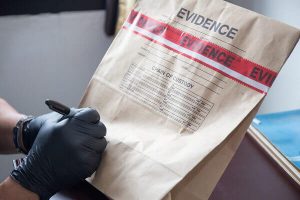Experienced Criminal Defense Lawyers Fighting Criminal Charges across New Mexico

Once you have been formally charged with a crime, you are entitled to evidence and information. As the defendant, you and your attorney can receive the materials the prosecution has as part of the discovery process.
However, the prosecution does not only disclose that information at the initial trial; they are required to do so even after the trial begins.
What Type of Discovery Applies to Your Case?
The most typical example of discovery is the police report. A standard police report includes your name, the name of witnesses, and any victims involved in the crime. Also, it contains statements from those individuals, officer notes, and information relating to your arrest. The police report is the first form of discovery you and your attorney receive.
Other types of discovery that might apply include:
- Recorded Interviews and Interrogations – Any recordings of police interviews with yourself, victims, and witnesses are given to your attorney.
- Photographs and Video of the Scene – If a crime scene is investigated, any pictures and videos of that scene are handed over to the defense.
- Records – Records regarding the victim’s injuries (if a victim is involved), police personnel assigned to the case, and witness criminal records must also be given to your attorney.
The Right to Exculpatory Evidence
The Constitution requires that state prosecutors give any evidence that might contradict your guilt. They must disclose this evidence, regardless of whether they feel it is exculpatory or not. If it warrants a lesser punishment or contradicts your alleged crime, they are required to give it to the defense.
This evidence also includes anything that questions the credibility of a witness, like a witness who receives leniency in exchange for his or her testimony.
What Happens if the Prosecution Does Not Supply Evidence?
If the defense learns that the prosecution withheld evidence, they may have a Brady violation. Typically, these violations are found after a defendant is convicted, and then the defendant might receive a new trial as a result.
Prosecutors must share evidence as part of your Constitutional right to a fair trial. If they do not share that evidence promptly, they could be found in violation of your rights and court procedures.
How Quickly Do They Have to Turn Over Evidence?
While required to submit evidence, that does not mean that the prosecution will do so quickly. If the courts feel that the prosecution unreasonably waited to disclose such information, then they may face contempt charges. However, it is common for prosecutors to wait on evidence for a few days (or even weeks) until they consider it necessary to turn it over.
Hire an Aggressive Defense Attorney for Your Case
There is no need to worry about when and how evidence is shared between the defense and prosecution. When you have a qualified attorney representing your case, you can rest assured that evidence is collected and shared appropriately.
Schedule a free case evaluation with the defense team from New Mexico Criminal Law Offices today at 505-375-4763 or request your appointment online.

